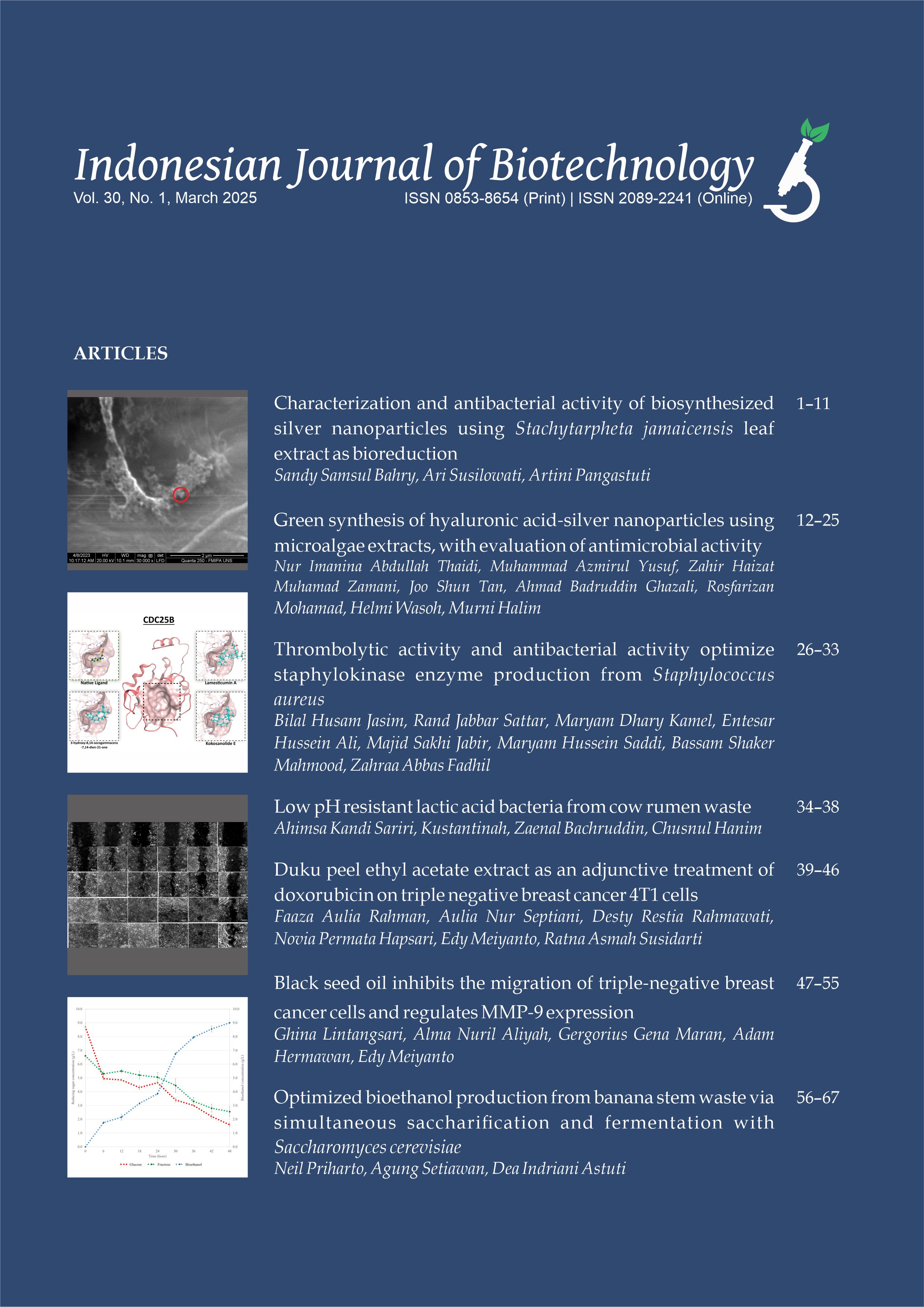Ability of Curcuminoid from Curcuma domestica Val. in Reducing the Secretion of Reactive Oxygen Intermediates by Synovial Fluid Monocytes in Patients with Osteoarthritis
Nyoman Kertia(1*), Ahmad Husain Asdie(2), Wasilah Rochmah(3), M. Marsetyawan(4)
(1) Department of Internal Medicine, Faculty of Medicine, Universitas Gadjah Mada, Yogyakarta, Indonesia Department of Internal Medicine, Dr Sardjito Hospital, Yogyakarta, Indonesia
(2) Department of Internal Medicine, Faculty of Medicine, Universitas Gadjah Mada, Yogyakarta, Indonesia Department of Internal Medicine, Dr Sardjito Hospital, Yogyakarta, Indonesia
(3) Department of Internal Medicine, Faculty of Medicine, Universitas Gadjah Mada, Yogyakarta, Indonesia Department of Internal Medicine, Dr Sardjito Hospital, Yogyakarta, Indonesia
(4) Department of Histology and Cell Biology, Faculty of Medicine, Universitas Gadjah Mada, Yogyakarta, Indonesia
(*) Corresponding Author
Abstract
Increasing the secretion of reactive oxygen intermediates (ROI) by monocytes in the synovial fluid is an
indicator to determine the severity of joint inflammation. Previous studies have shown that curcumin inhibit
the osteoarthritis progression with its ability to inhibite the activity of the nitric oxide synthase (NOS) enzyme
from macrophages. In this prospective randomized open end blinded evaluations = PROBE study, 80 patients
with knee osteoarthritis were eligable. The subject were devided in to two group: group who received 3 x 30
mg of curcuminoid from Curcuma domestica Val. extract (curcuminoid group) and group who received 3 x 25
mg of diclofenac sodium (diclofenac group) as comparison. The treatment was for 4 weeks time. The secretion
of ROI by sinovial fluid monocytes was calculated by scoring the amount of formazan formation after neutral
red staining in nitrobleu tetrazolium reduction assay. The result of this study showed that the secretion of ROI
by synovial fluid monocytes was significantly decreased in both groups (p <0.001) respectively. There was
no significant difference in decreasing of ROI secretion of synovial fluid monocytes between both treatment
groups (p = 0.92).
indicator to determine the severity of joint inflammation. Previous studies have shown that curcumin inhibit
the osteoarthritis progression with its ability to inhibite the activity of the nitric oxide synthase (NOS) enzyme
from macrophages. In this prospective randomized open end blinded evaluations = PROBE study, 80 patients
with knee osteoarthritis were eligable. The subject were devided in to two group: group who received 3 x 30
mg of curcuminoid from Curcuma domestica Val. extract (curcuminoid group) and group who received 3 x 25
mg of diclofenac sodium (diclofenac group) as comparison. The treatment was for 4 weeks time. The secretion
of ROI by sinovial fluid monocytes was calculated by scoring the amount of formazan formation after neutral
red staining in nitrobleu tetrazolium reduction assay. The result of this study showed that the secretion of ROI
by synovial fluid monocytes was significantly decreased in both groups (p <0.001) respectively. There was
no significant difference in decreasing of ROI secretion of synovial fluid monocytes between both treatment
groups (p = 0.92).
Keywords
curcuminoid; diclofenac sodium; reactive oxygen intermediates; monocyte; osteoarthritis
Full Text:
PDFArticle Metrics
Refbacks
- There are currently no refbacks.
Copyright (c) 2016 Nyoman Kertia, Ahmad Husain Asdie, Wasilah Rochmah, M. Marsetyawan

This work is licensed under a Creative Commons Attribution-ShareAlike 4.0 International License.









